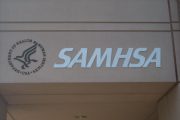
One day after explaining how she was “proud” of her dual Swiss-American citizenship, Representative Michele Bachman (R-Minn.) renounced the Swiss side of the hyphen, saying, “Today I sent a letter to the Swiss Consulate requesting withdrawal of my dual Swiss citizenship, which was conferred upon me by operation of Swiss law when I married my husband in 1978. I took this action because I want to make it perfectly clear: I was born in America and I am a proud American citizen.”
According to information published on Politico and confirmed by Bachmann’s own statement on the matter, Bachmann and her family applied for and were granted citizenship in Switzerland based on her husband’s dual citizenship, a status he gained by virtue of being the son of Swiss immigrants.
Bachmann originally claimed that she and her family wanted to honor her husband’s Swiss heritage by becoming, like him, citizens of the Alpine nation. She later changed her story, insisting that her dual citizenship status was “conferred by operation of Swiss law” upon her marriage to her husband in 1978.
In an answer to inquiries into the matter, Bachmann issued the following statement on her website, a statement that appears to presage Bachmann’s understanding of the seriousness of the situation:
“This is a non-story. I automatically became a dual citizen of the United States and Switzerland in 1978 when I married my husband, Marcus. Marcus is a dual American and Swiss citizen because he is the son of Swiss immigrants. As a family, we just recently updated our documents.”
There are a few points of legitimate concern to Bachmann’s constituents in this story. First, despite popular misconception, there is no such thing as “dual citizenship” in the United States of America. As a former immigration attorney, I was bound to explain this to many clients who wished to become American citizens while retaining citizenship in the land of their birth.
Admittedly, the government of the United States does not actively enforce a prohibition against dual citizenship, but the policy discouraging it is clearly explained on immigration websites maintained by the United States Citizenship and Immigration Services and the U.S. State Department.
In fact, according to the information published on the State Department website under “US State Department Services Dual Nationality,” the following warning is given to those who would voluntarily seek citizenship in a nation other than the United States:
“a person who acquires a foreign citizenship by applying for it may lose U.S. citizenship. In order to lose U.S. citizenship, the law requires that the person must apply for the foreign citizenship voluntarily, by free choice, and with the intention to give up U.S. citizenship.”
When this statement is compared to the account of events provided by Representative Bachmann of her family’s acquiring of Swiss citizenship, it is a very close call as to whether the former Republican presidential candidate would be in jeopardy of forfeiting her American citizenship.
One last point on this topic. As stated above, I worked for several years as an immigration attorney and in the course of my career I was fortunate enough to see a few clients achieve their lifelong dream of becoming a citizen of the United States of America. These ceremonies are often emotional and are generally speaking life changing for those who have waited years for the reward for their compliance with the often substantial immigration hurdles placed in their way.
At the ceremony, those seeking citizenship are required to take an oath pledging their allegiance to their new country. That oath reads:
I hereby declare, on oath, that I absolutely and entirely renounce and abjure all allegiance and fidelity to any foreign prince, potentate, state or sovereignty, of whom or which I have heretofore been a subject or citizen; that I will support and defend the Constitution and laws of the United States of America against all enemies, foreign and domestic; that I will bear true faith and allegiance to the same; that I will bear arms on behalf of the United States when required by the law; that I will perform noncombatant service in the armed forces of the United States when required by the law; that I will perform work of national importance under civilian direction when required by the law; and that I take this obligation freely without any mental reservation or purpose of evasion; so help me God.
Representative Bachmann must have recently read this oath as the act of voluntarily seeking Swiss citizenship (an act to which she admits) could be interpreted by many to be the swearing of allegiance to a foreign state.
Next, although it may seem to many that Bachmann’s application for dual nationality was ill advised, they may see any uproar over it to be the making of a mountain out of a mole hill. Perhaps. But there is the Constitutional aspect to consider, as well.
Article I, Section 9 of the Constitution reads in relevant part:
No Title of Nobility shall be granted by the United States: And no Person holding any Office of Profit or Trust under them, shall, without the Consent of the Congress, accept of any present, Emolument, Office, or Title, of any kind whatever, from any King, Prince or foreign State.
There can be no argument that Representative Bachmann accepted some Swiss title of nobility or in fact, any Swiss title or office whatsoever. However, the proscription against accepting an emolument may be material.
An emolument may be defined as an honor. While certainly not a clear cut case, the seeking of and subsequent receipt of citizenship in another nation could be interpreted to be the acceptance of an honor, an act not permitted by one holding an office or trust under the United States. It is inarguable that framers of the Constitution certainly intended to include the office of a member of Congress under that category.
In light of the foregoing information, there are some conservatives who are calling for Representative Bachmann to resign her office. They argue that Bachmann’s acceptance of Swiss citizenship is a de jure oath of allegiance to a foreign power and thus a de facto renunciation of her American citizenship. Further, the embrace of the honor of Swiss nationality, it is claimed, is an unconstitutional acceptance of an emolument and disqualifies Bachmann for service in the House of Representatives.
When contacted by The New American for a statement, a spokesman for the Swiss Embassy in Washington, D.C. responded, “The Embassy does not comment on this private decision by Mrs. Bachmann.”
This “private decision” may have public consequences, however. Bachmann is currently campaigning to retain her seat in the House (she represents Minnesota’s Sixth Congressional District) and her Democratic opponent has seized on Bachmann’s Swiss Miss-take:
“Earlier this year, Rep. Michele Bachmann was Iowan, earlier this week she was Swiss and today she’s an American,” Graves campaign spokesman Donald McFarland said in a statement Thursday. “Jim Graves has always known where he’s from, where he raised his family and where he built his businesses — St. Cloud Minnesota.”
For her part, one gets the sense that Representative Bachmann, the Tea Party darling, comprehends the constitutional conundrum she may be facing. In her statement announcing her request to withdraw her Swiss citizenship, Bachmann declares:
“I am, and always have been, 100 percent committed to our United States Constitution and the United States of America.”
That begs the question: If she is found to have violated Article I, Section 9, will Representative Bachmann be “100 percent committed” to that section of the Constitution, as well?
Photo: Michele Bachmann with husband Marcus at the 2011 Time 100 gala, where Michele was an honoree



